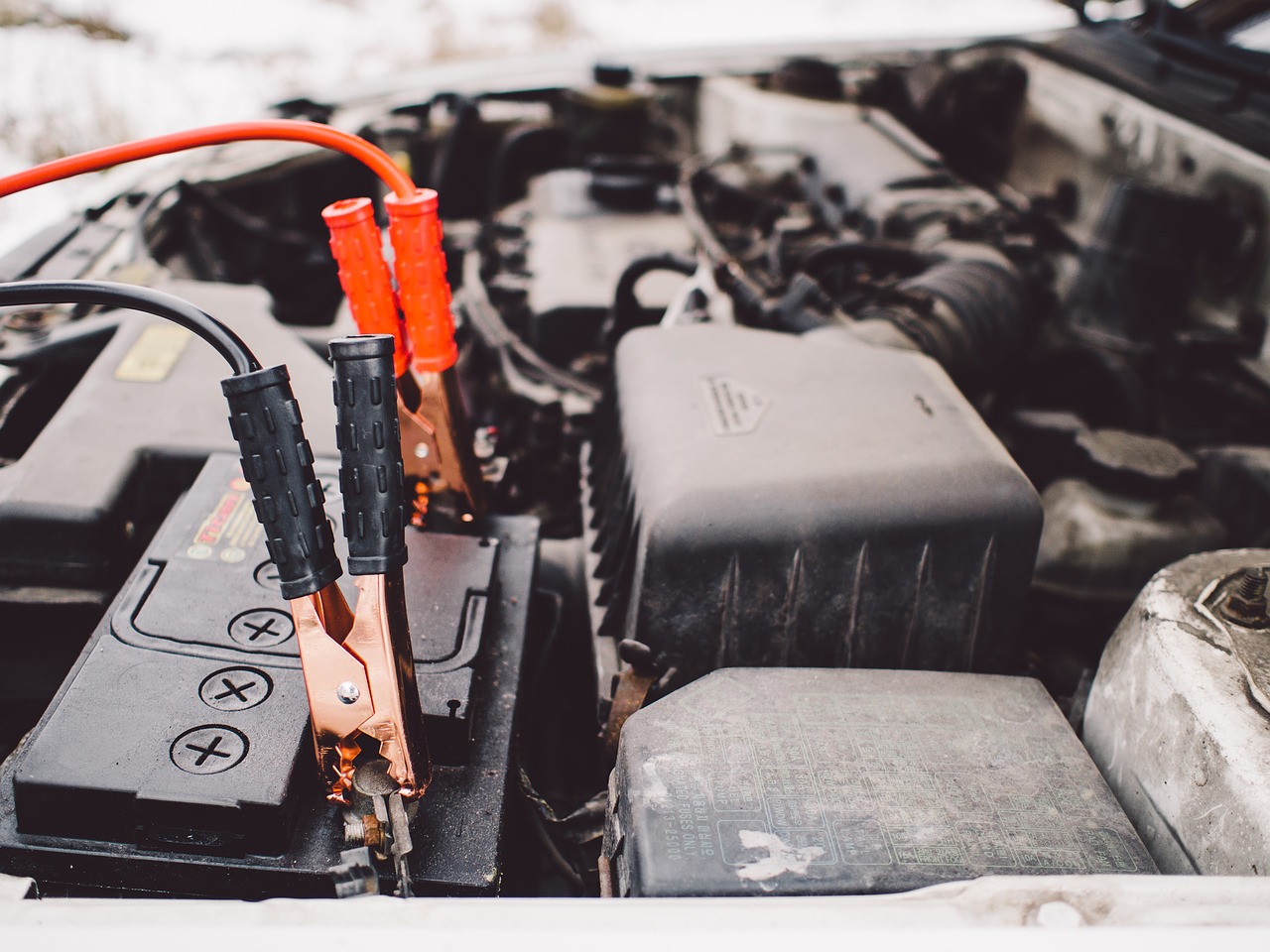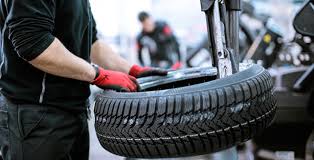
"Horror!! My battery has been sulphated and I was only 12 months old »
All caravan lovers have heard or even suffered that phrase. Well, although I don't want to be too heavy or too technical, let me tell you some general notions about drums.
What we normally call "batteries" are lead accumulators that have the characteristic of accumulating electrical energy while charging and delivering it when discharged. These accumulators are made (schematically) of lead peroxide plates connected to each other to the positive of the battery and another set of lead plates, also connected to each other but to the negative of the battery and all of them submerged in a solution sulfuric acid.
When the battery is delivering electrical current to us (discharging), the lead peroxide plates react with sulfuric acid and transform into lead sulfate and water, and the lead plates also contribute lead sulfate. When the battery is charging, either by the electricity produced by the motor of our motorhome (the alternator), or by the one produced by the solar panel if we have it, or by the battery charger if we have the motorhome connected to 220V, or by any other method, what happens is that we are putting electrical current into the battery so that it accumulates in it and the chemical reactions that then take place are the inverse. That is, lead sulfate becomes lead, lead peroxide and water become sulfuric acid again, producing hydrogen and free oxygen. When the battery begins to discharge because we have put the TV or any other element, the first cycle starts again. The reactions, in case anyone is interested, are:
Pb + SO4 = PbSO4 + 2e¯ (Anode) and PbO2 + SO4 + 4H = PbSO4 + H2O (Cathode)

Image of sulphated battery.
As we have mentioned, in all batteries when they are discharging, LEAD SULPHATE is being formed inside them. That is the "terrible" LEAD SULPHATE that has such a bad reputation and for which we are always told: "your battery is dead, it has been sulphated."
Well, as you have seen before, this lead sulfate is forming permanently while the battery is discharging and it is transforming back into lead while the battery is charging. So: What happens ?, where is the problem?
Well, here's the problem: this lead sulfate that forms in the discharge, if you could see it, is "amorphous" and looks somewhat spongy. If it is charged, in a short time it begins to form lead again through the process we have seen before, but if it takes several days or many hours to charge the battery, this lead sulfate is transformed "Him alone" spongy a CRYSTAL SHAPE (small crystals of lead sulfate that increase in size over time), which no longer change to lead when the battery is recharged.
In this way, we lose parts of the lead in the battery that remain permanently in the form of crystalline lead sulfate if we do not recharge it completely afterwards. These parts are no longer recovered and when this happens to us repeatedly the battery "dies". This process is the culprit that we hear the fateful phrase "IT HAS BEEN SULFATED, YOU HAVE TO PUT A NEW ONE"
For those of us motorhomes, this is a serious problem if we do not keep in mind the process of sulphating the batteries, which is why I call "the death of the weekend." But don't panic! When we go out on weekends, be it Friday or Saturday to return on Sunday afternoon or evening, we usually do it at short distances, not many kilometers from our city.
Well, this means that we spend one or two nights in our car, using the interior lights and in many cases the TV or other elements (water pump, heating motor ...), spending a considerable part of the energy accumulated in our battery . But when we return on Sunday, as we are a few kilometers away (100 or 200) we do not have enough time for the engine of our car to recharge the spent of our battery, and even less if we return in the afternoon / night with the high beams or the air conditioning on, so the alternator recharges little.
So when we get to the car park, we have not recharged all the spent energy from our battery, and from what has been said above, that amorphous lead sulfate transforms into crystalline during the week that we have it immobilized, with which little by little we are doing die to the battery.
Most of the time it's not that the battery is bad, but that is how they work. But calm down WE CAN AVOID THESE EFFECTS.
A very important point that I want to address is "the risk of explosion." As we have seen, whenever the battery is charging, oxygen and hydrogen gases are generated (so the battery is permanently losing water).
These hydrogen and oxygen gases, when put together, are highly explosive, especially from a flame or spark such as that of lighting a cigarette. I have had two cases of explosions of two cars of two acquaintances. In one of the cases, in addition to causing a lot of damage inside the motorhome, it caused several burns to the owner due to sulfuric acid, which is very dangerous.
As long as we carry waterproof batteries, they must be placed in a closed box with enough ventilation, with holes on the outside at the bottom of the motorhome. That is why in cars, the batteries are placed in the engine compartment, which always has large openings to the outside at the bottom.
In another article we will discuss the different types of batteries to understand all this a little better and try to better understand which type of battery is better and why in each case. I have tried to take a look at the functioning and problems of the batteries since for us motorhomes it is a very important issue. Any questions or queries you have, contact us in this article or through our website.
A hug and good luck!
What happens when a toy that has this blue powder is where the batteries go? Is there any way to fix it?
Friend I wanted to know what time a battery can be sulfated, I bought a cell phone on a Wednesday and after 5 days it stopped working and they do not recognize the guarantee because they say it was humidity but in reality it has never had contact with water, I also think that to have 5 days of use I do not think it can be sulphated so quickly, is it possible? or was it already wet from the store? Thanks in advance
Good afternoon, very good article.
My question is:
Can a car battery be placed in parallel? Why?
Thank you. Greetings from Ecuador.
Hello good afternoon. I am a newbie to camper vans. I would like to know if an agm battery can be used for starting the engine. That a few times a week. I have a 12v and 160w solar panel and I don't have much consumption. I would like to put only one agm battery, both for starter and for passenger compartment. I am thinking of a 150ah AGM battery. Best regards Mario. I hope an answer as soon as possible. Thank you.
Good morning Freddy,
The sulphation of batteries happens to us in the same way in all batteries except lithium ones.
Thanks a lot.
Good afternoon, excellent explanation, I am not a user of a caravan but I got here looking for "because the negative terminal of a battery is sulfated", is it correct to deduce that if the vehicle is used assiduously in short stretches the problem lies precisely in that? Thanks, greetings from Uruguay.
Good morning Marcelo,
Indeed in this case it is possible that the problem lies in this. Although the problem is not that the terminal is sulphated, the problem is that the inner plates of the battery are sulphated.
In every battery discharge process, lead sultafo crystals of amorphous structure are produced, when we charge the battery these crystals dissolve, if we leave the battery discharged for a long time that amorphous structure becomes crystalline and no longer dissolves.
Thanks a lot.
Hi. Very good explanation, would it be necessary to change the battery if I have this problem? Or could it be a problem with the alternator not charging the battery well?
Hello, and when the batteries are sealed, the same thing happens, they sulfate or only those that can be put in Distilled Water
Good morning Juan,
We refer to putting the passenger compartment in parallel, the engine starter without any modification.
Thanks a lot.
Hello, when you say to put two batteries in parallel, it is counting the starter of the motorhome or you mean that it would be better to put two gel batteries, smaller in parallel, for the passenger compartment.
Thank you.
Juan
Thank you very much Jaime for your comment.
Greetings from the team.
Good afternoon in the event that the vehicle has two batteries and the negative that could be still sulfated and how to correct it, thank you ...
I have an xplorer 95 form in three days it starts to sulfate the positive pole and in 4 days it is discharged
Thanks for the explanation. They told me to pour boiling water into it to remove the lead crystals.
Is sulphation avoided by taking it out on the road? And it was several km?
Hello, Gerardo,
I understand that it refers to sulphated batteries, this can be done, special equipment is needed that breaks the crystals that form in the sulphated to be able to recover the batteries
Thanks a lot.







The specialty of Comercial Caravaning is the close relationship with our clients. You can come check it out at Comercial Caravaning in Alcorcón, very close to Madrid, Móstoles, Leganés... Very close to TI (experts in caravans, motorhomes and campers in the south of Madrid).


Permaneceremos cerrados por festivo local en el dia de hoy
This will close in 20 seconds
Contacto por WhatsApp